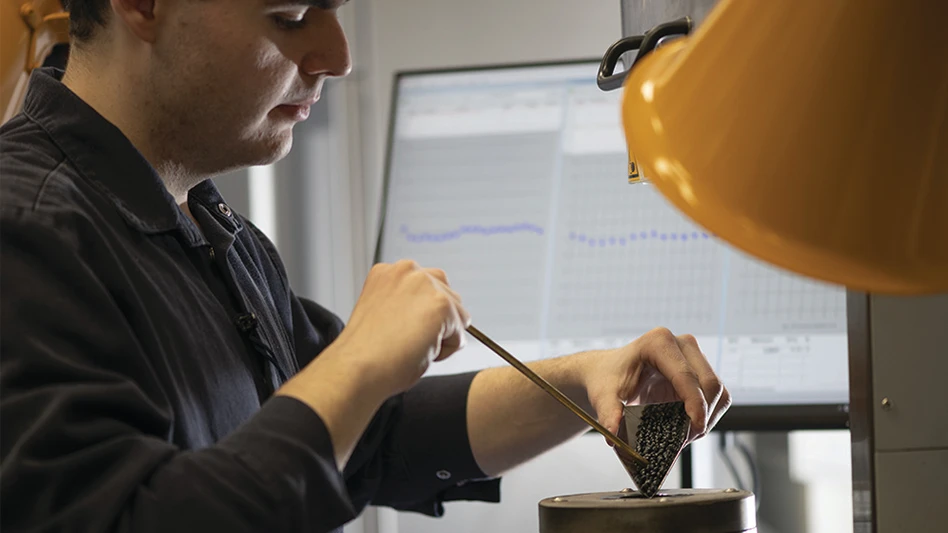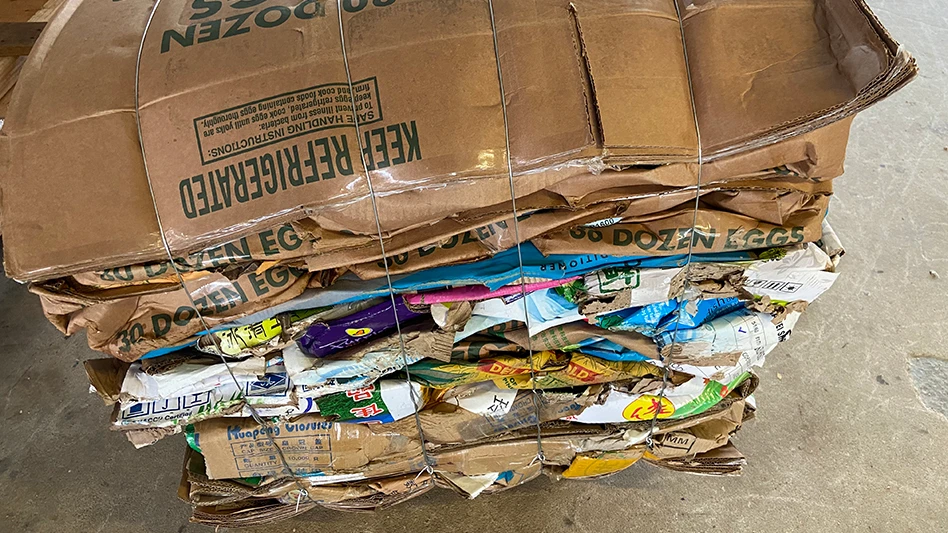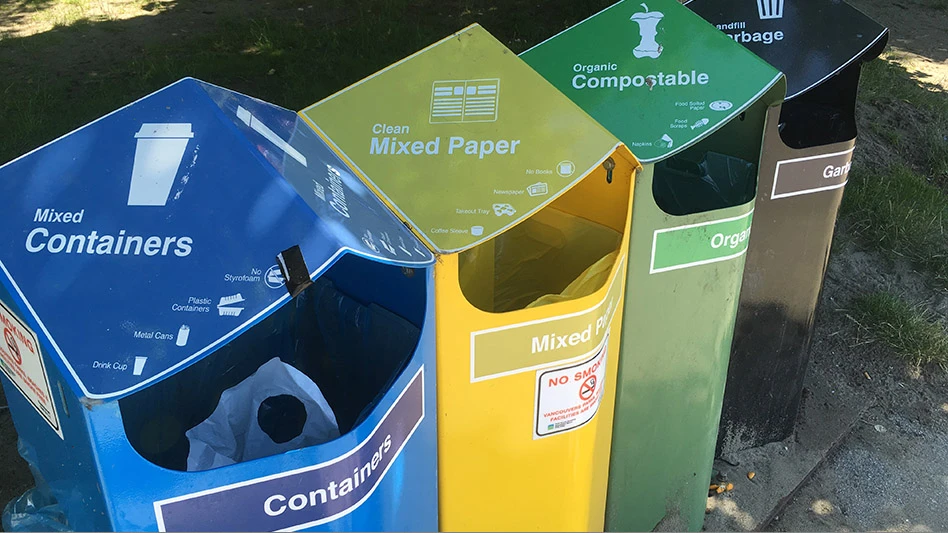Petroleum, natural gas and alternative energy all play a role in plastics pricing, availability and disposition.
In a session at Recycling Today’s Plastics Recycling Conference entitled "Energy: The Double-Edged Sword," Rudy Underwood of the American Chemistry Council offered an overview of how this decade’s rising energy costs have affected the plastics industry overall.
The use of plastic in packaging has become popular largely for energy-saving reasons, said Underwood, who noted as an example that it takes seven truckloads of paper bags to equal the number of plastic bags that can be transported in one truckload to serve a retail location.
While petro-chemicals are used in the production of plastic, seemingly a disadvantage, it also means that plastic scrap "is stored energy," said Underwood, who pointed out that one ton of plastic material contains the energy equivalent of eight barrels of oil.
Two additional speakers gave presentations on plastics energy recovery systems currently in use. Greg McWatt of Global Electric Electronic Processing International (GEEP) described how plastics recovered at the company’s electronics recycling plant in Ontario are being converted to diesel fuel.
The company’s plant in Barrie, Ontario, accepts a wide variety of electronic scrap, using an array of automated equipment to separate the metals, plastics and glass streams.
While the return on scrap metals make the sorting of those materials well worthwhile, the markets for mixed or even slightly contaminated plastic scrap are limited. For that reason, GEEP has invested in a catalytic de-polymerization system that converts its mixed plastic scrap into diesel fuel. That fuel is then used to power a generator on site.
According to McWatt, the plant’s plastic scrap is currently creating from 500 to 1,000 liters per hour of diesel fuel. The generator powered by the fuel can provide power to the Barrie plant or can generate power to be sold to the Ontario power grid.
Global Resource Corp., West Berlin, N.J., creates systems that turn many forms of waste into power sources. The company’s Hawk Hogan said Global Resource Corp.’s microwave and gasification technology is being deployed in Iraq, where military food packaging and other scrap and waste is being converted into an on-site power source.
A system of interest to scrap recyclers is being installed at an auto shredding plant in New York State. That system, according to Hogan, will be able to convert every five tons of auto shredder residue (ASR) into 37 Btus of energy, allowing the troublesome ASR waste product to actually power the shredding plant.
TIRES California Approves Grants for Tire RecyclingThe California Integrated Waste Management Board has approved $1.7 million in grants to increase end markets for scrap tires.
Fourteen grants from the state’s Tire Recycling Management Fund were approved by the board to help firms purchase equipment to expand and speed up the conversion of California scrap tires into crumb rubber feedstock.
Allocated through the board’s Tire-Derived Product Business Assistance Program (BAP), grantees can use the money for various operational activities. In general, the board’s BAP can assist grantees in all workplace categories, including technical, marketing, testing and equipment acquisition.
The board also has approved $1.6 million in incentive grants to support and promote the use of rubberized asphalt concrete.
A full list of grant recipients is at www.RecyclingToday.com.

Explore the August 2007 Issue
Check out more from this issue and find your next story to read.
Latest from Recycling Today
- Commentary: How EPR is transforming the packaging industry
- Acerinox names new North American Stainless CEO
- Greenwave closes 2024 books with red ink
- Steel Dynamics nets $217M on record shipments
- Massive Chinese steelmaking rebound recorded in March
- LME looks into sustainable metal pricing
- OnePlanet Solar Recycling closes $7M seed financing round
- AMCS launches AMCS Platform Spring 2025 update





